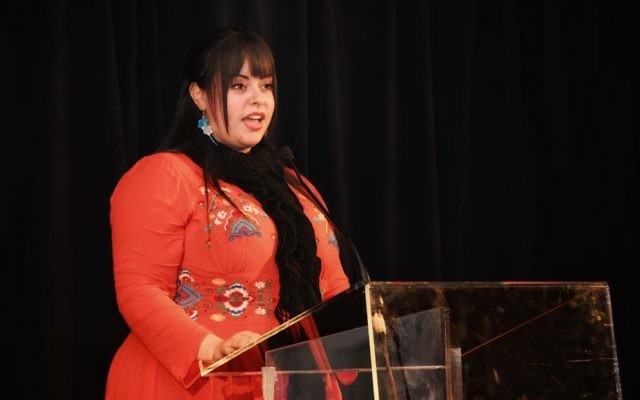Erlich behind the headlines
In October of last year, Dassi Erlich sat with her sisters, Nicole Meyer and Elly Sapper in a restaurant in Israel. Exhausted, they were grabbing a bite to eat between back-to-back media appearances and meetings. And then an ultra-Orthodox girl approached the trio, recognising them from the television.
In October of last year, Dassi Erlich sat with her sisters, Nicole Meyer and Elly Sapper in a restaurant in Israel. Exhausted, they were grabbing a bite to eat between back-to-back media appearances and meetings. And then an ultra-Orthodox girl approached the trio, recognising them from the television. She told the sisters how their story had helped her explain her own personal story. How it helped her to understand what was happening to her with a female teacher. And how it helped her to stop the abuse.
“That interaction was a pivotal moment for us,” shared Erlich as she addressed more than 140 people at the National Council of Jewish Women of Australia (Victoria) Autumn Brunch at the Malvern Town Hall on Monday.
“When we felt we couldn’t continue, it reminded us that there was a bigger picture here. We were not only fighting for justice and it was clearly evident that this went way beyond that.”
While Erlich has been the public face of the campaign to extradite former Adass principal Malka Leifer from Israel to Australia where she faces charges relating to 74 counts of child sexual abuse, on Monday Erlich revealed a more personal side to her endeavours, detailing the reluctance felt when considering sharing her story.
“Would society always see me as a victim?” she asked.
As “an extremely private person”, Erlich also was concerned as to how she would cope with being in the public eye, and how she has since to come to terms with her identity becoming “public property”.
But her persistence for progress proved too strong.
“I wanted to speak out and create change not only with the Leifer case, but a broader societal change and I felt that if I paved the way for others to speak out, it would be worth it.”
While community support has been overwhelmingly supportive, the journey to justice has not come without a price.
There have been several visits to the emergency room with the stress taking its toll on Erlich. Then there was dealing with those who disbelieved, or had their own agendas; and Erlich has had to learn how to navigate the media minefield.
“I’ve noticed that people have this expectation of survivors to readily share every detail of their story … and working out our boundaries has been a constant balancing act,” Erlich said.
“[But] real change starts with uncomfortable conversations.
“Sexual abuse thrives in secrecy in cultures that encourage secrecy. And our job is to eradicate that shame and to continue supporting those who refuse to hide behind shame.
“Let’s not give up on the conversation. Let us end this culture of silence, once and for all.”
REBECCA DAVIS


comments